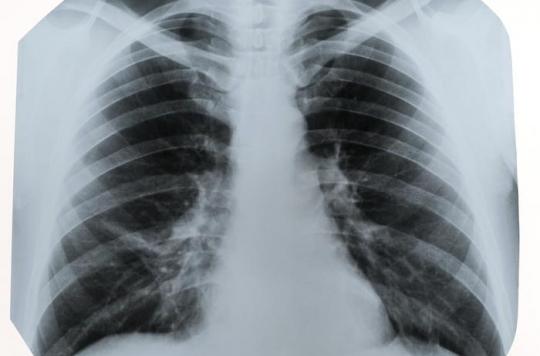An unfortunate French woman with cystic fibrosis developed lung cancer due to a transplant of this same organ.

Some are less fortunate than others. This is unfortunately the case of a French woman with cystic fibrosis, who developed lung cancer due to a transplant of this same organ, as described in the review Lung Cancer in its October 2018 issue.
Saved from cystic fibrosis
Cystic fibrosis is a genetic disease that primarily affects the lungs and digestive system. It is characterized by the accumulation of thick mucus in various organs, including the respiratory tract, sinuses, pancreas and intestines. The life expectancy of patients does not exceed 50 years. When the deterioration of the respiratory functions threatens the life of the patients, a lung transplant can be performed.
Two years had passed between this transplant, and the admission of the 39-year-old patient to the Montpellier hospital center (Hérault), after a lung x-ray revealed suspicious foci, proving to be a cancerous tumor. particularly aggressive.
Immunosuppressive therapy
“The recipient’s immunosuppressive treatment induced an accelerated growth rate of the primary tumor and metastasis,” says Lung Cancer, claiming it was “non-small cell lung cancer.” In other words, the lungs of the donor, aged around fifty, were healthy during the transplant, despite the fact that she had been a heavy smoker, consuming a pack of cigarettes daily for thirty years.
Tobacco being the main cause of lung cancer, the choice of the donor is still surprising. Clinicians further suggest that “lung transplants from donors who were current smokers (or who have recently quit smoking) should be viewed with caution as the emergence of lung cancer in the recipient is triggered by immunosuppressive therapy.
Other similar cases
Very rare, the cases of cancers developed after an organ transplant are not unprecedented in medical history. As reported recently the American Journal of Transplantation, four patients fell ill after receiving lung, liver, left kidney and right kidney transplants. Coming from the same donor, all the organs were contaminated with cancerous cells.
At the time of donation, the organs were only affected by micro-metastases, undetectable at the time. Three of the four unfortunate patients will die as a result of their cancer. Normally, to avoid any contamination, people who have already contracted cancer cannot donate their organs after their death (with rare exceptions). This keeps the risk of transmission from an infected organ to a very low level, between 0.01% and 0.05%.

.
















